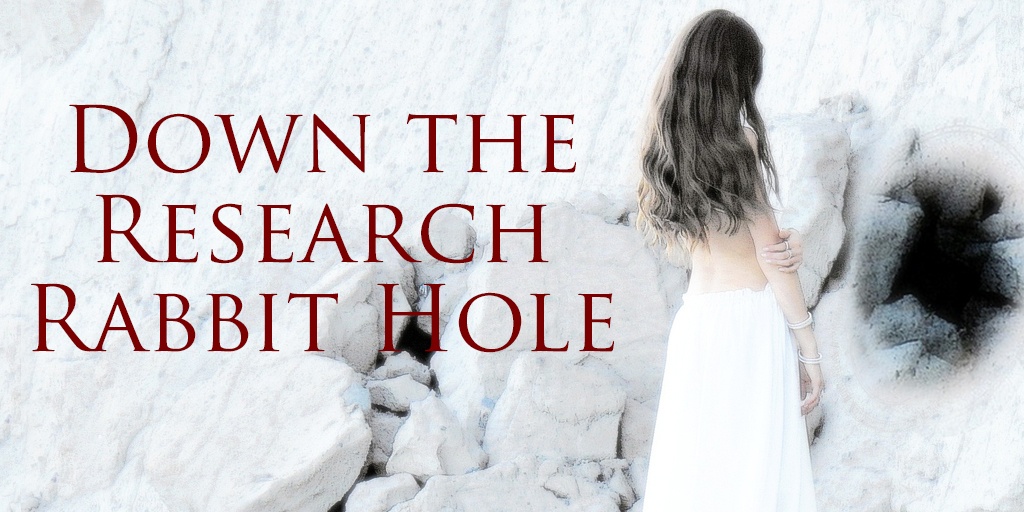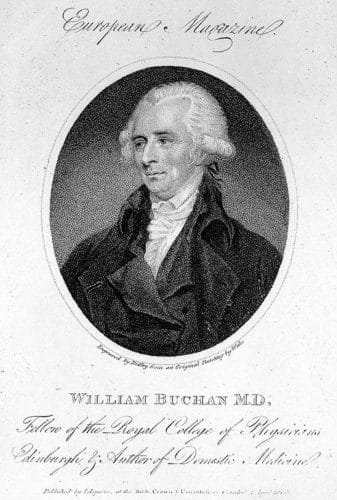Home Medicine in Jane Austen’s Day

William Buchan’s book Domestic medicine or the family physician was the backbone of home medicine in Jane Austen’s day.
During Jane Austen’s day, the practice of medicine as we know it today was still in its infancy. Formally trained doctors were unavailable to many either because of cost or distance. Consequently many of the curative arts were practiced at home. William Buchan’s book Domestic medicine or the family physician.
Buchan’s Early Life
William Buchan was born in Scotland in 1729. Even before his formal training he served as an amateur doctor to his village. In 1758 he qualified in medicine. The following year he served as the first surgeon and apothecary to a Yorkshire branch of the Foundling Hospital. Experience gained in this post influenced his MD dissertation for Edinburgh University On the preservation of infant life (1761).
Domestic Medicine
In 1769 Buchan published his seminal work, Domestic medicine or the family physician. It was the first text of its kind. Previous medical texts were theoretical and written for well-educated readers or were brief manuals not descriptive enough to be helpful. Buchan wrote Domestic Medicine in lay terms. It described both the diseases and treatments clearly enough that untrained people could fabricate the necessary remedies.

Priced at just 6 shillings, it was an immediate success. 80,000 copies from the 19 (English) editions of the book sold during his lifetime. Beyond Buchan’s native English, Domestic Medicine was translated into all the major European languages even Russian. The text remained in print until 1846 in Britain, and 1913 in the Americas.
Unfortunately, many of his remedies were no better than was currently in use at the time. Many of the cures were grounded in the theories of bodily humors, making him a proponent of bloodletting and purging as cures. Moreover, he proposed that too much of any one ‘non-natural’: air, meat and drink, sleeping and watching, exercise and quiet, evacuations and obstructions, and passions could result in an illness inducing imbalance. Thus, he advocated letting nature take its course by helping a patient reset to a natural ‘set point’.
Still, though, he was ahead of his time. More than a third of his book related to the prevention of disease by such (in today’s eyes) common sense measures as fresh air, exercise, hygiene, cleanliness and inoculations. He also encouraged breast feeding as a means of reducing infant mortality and opposed the use of stupefactives on children.
On 25 February 1805 Buchan died at 76. He was buried in Westminster Abbey, leaving a legacy on medicine that we still feel today.
In case you want to take a look as his book, you can find it on line here: https://archive.org/details/domesticmedicin00buchgoog
Reference
Buchan W. (1784) Domestic medicine or a treatise on the prevention and cure of diseases by regimen and simple medicines. (H Chamberlain and others, Dublin), 9th ed..
Dunn PM. Dr William Buchan (1729–1805) and his Domestic medicine. Archives of Disease in Childhood – Fetal and Neonatal Edition 2000;83:F71-F73.

Comments
Home Medicine in Jane Austen’s Day — No Comments
HTML tags allowed in your comment: <a href="" title=""> <abbr title=""> <acronym title=""> <b> <blockquote cite=""> <cite> <code> <del datetime=""> <em> <i> <q cite=""> <s> <strike> <strong>